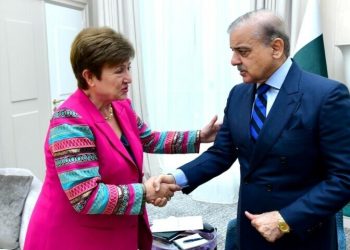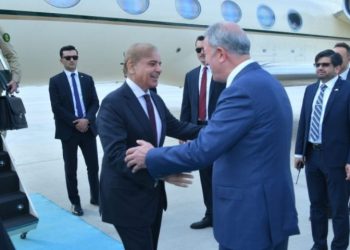ISLAMABAD: Pakistan has been asked by the International Monetary Fund (IMF) to take additional taxation measures in the shape of income and sales taxes and regulatory duty (RD) to pull up the annual tax collection target from Rs5.8 trillion to Rs6.3 trillion.
This new demand by the IMF comes during the ongoing virtual talks in the context of losses incurring on the account of non-collection of petroleum levy of over Rs600 billion during the current fiscal year. The government will have to take additional revenue measures on the FBR front to bridge the gap that surfaced on account of non-collection of petroleum levy, an official was quoted as saying by the publication.
What else has the IMF suggested Pakistan do?
Another recommendation by the IMF is to increase the base price of the electricity tariff to the tune of Rs1.40 per unit to curtail the surge in circular debt.
Pakistani authorities have made quarterly adjustments to the power tariff, but if the base price is not increased, it is feared that the pace of accumulation envisaged under the Circular Debt Management Plan (CDMP) won’t be materialised, the publication reported.
“Talks are underway and both sides may evolve a consensus on a staff-level agreement whereby the FBR’s target may be jacked up from Rs5.8 trillion to Rs6-6.1 trillion for the current fiscal year in the wake of FBR’s increased collection at import stage,” top official sources confirmed to the publication.
IMF has also made a suggestion to increase the rate of personal income tax by adjusting the higher income bracket earning Rs75 million on an annual basis, the officials said. There are different proposals under consideration to adjust the rate of personal income tax to fetch an additional Rs100 billion to Rs150 billion.
There is another proposal to withdraw more GST exemptions within the current fiscal year. The FBR has also prepared a list of a few dozen items where the RD will be jacked up for getting additional revenues. The withdrawal of Additional Customs Duty recommended by the National Tariff Commission might be delayed but the final decision was expected on the eve of the upcoming budget.
The publication reported that the IMF wants to amend the NEPRA law where automatic adjustments both downward or upward adjustments on a quarterly basis should be done without the intervention of the government.
The IMF reportedly considers the existing pace of FBR’s revenue collection as “unsustainable”, so additional revenue measures are imperative to achieve fiscal sustainability. There are two major outstanding issues, including fiscal sustainability and fixing the cash bleeding energy sector.
“We are hopeful that the staff-level agreement will be achieved till October 15, 2021, as Minister for Finance Shaukat Tarin will be visiting Washington D.C from coming Tuesday for finalising review talks for clubbing both sixth and seventh reviews under the $6 billion Extended Fund Facility (EFF)” said the official sources.
If all goes well, the IMF’s Executive Board will grant approval of $1 billion by the end of November 2021, the official added.
IMF satisfied so far with collection: FBR chairperson
So far, the IMF is satisfied with the collection of the board, says FBR Chairperson Dr Mohammad Ashfaque.
He was speaking to journalists after attending the Senate Standing Committee on Finance at the Parliament House.
He said that the ongoing talks with the IMF have not concluded so far, but that the Fund staff was satisfied with the collection of the board. He said that the FBR exceeded its target by Rs186 billion in the first quarter as the revenue collection stood at Rs1,395 billion in the first three months of the current fiscal year.
The FBR’s annual tax target, he said, would be achieved. Senior FBR officials briefed the IMF on direct and indirect taxes.


















































